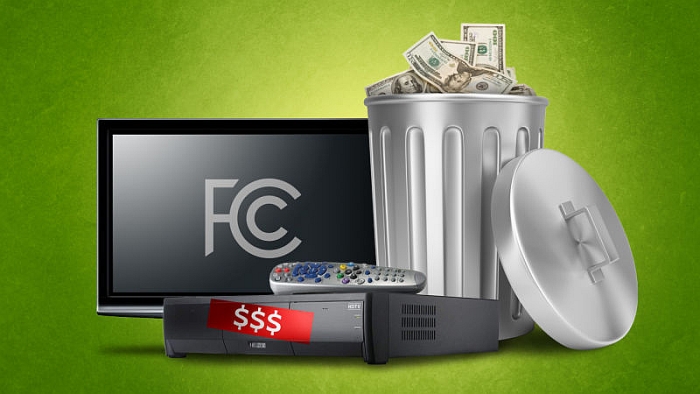The move is expected to have wide-ranging implications for large technology companies looking to get their brand names into every consumer’s living room. For example, under the new rules, Google, Amazon and Apple would now be allowed to create entertainment room devices that blend Internet and cable programming in a way the television industry has until now resisted. Next-generation media players, including the Chromecast, Fire TV and Apple TV, would now be granted permission to line the backs of their devices with coaxial inputs and internal “smart access card” equivalents integrated right into device firmware with a simple subscription activation process.

Source: Recode.net
As the Wall Street Journal notes, Senators Edward Markey of Massachusetts and Richard Blumenthal of Connecticut investigated the cable set-top box market last summer and found that the cable industry generates roughly $19.1 billion in annual revenue from cable box rentals alone.
Meanwhile, the cost of cable set-top boxes has risen 185 percent since 1995, while the cost of PCs, televisions and smartphones has dropped by 90 percent. FCC Chairman Tom Wheeler admits that these economies of scale don’t need to remain so unbalanced any longer.
The FCC says its focus will be primarily on improving day-to-day television experience. In the past, the burdensome requirements of long-term contracts tethered to clunky, unsightly cable and satellite boxes has been a major source of customer complaints.
Source: Lifehacker.com
“It’s time to unlock the set-top box market — let’s let innovators create, and then let consumers choose,” said FCC Chairman Tom Wheeler in a blog post. “This week, I am sharing a proposal with my colleagues to tear down the barriers that currently prevent innovators from developing new ways for consumers to access and enjoy their favorite shows and movies on their terms,” Wheeler said. “The new rules would create a framework for providing device manufacturers, software developers and others the information they need to introduce innovative new technologies, while at the same time maintaining strong security, copyright and consumer protections. Nothing in this proposal changes a company’s ability to package and price its programming to its subscribers, or requires consumers to purchase new boxes.”
Wheeler has also said that access to specific video content shouldn’t be frustrating to the average consumer in an age where we are constantly surrounded by a breadth of information to sift through. “Improved search functions [can] lead consumers to a variety of video content that is buried behind guides or available on video services you can’t access with your set-top box today,” Wheeler says.
The FCC is expected to vote on the proposal on Thursday, February 18th. FCC Chairman Tom Wheeler’s full statement on the commission’s new proposal can be found here.




